So anyway, here's a breakdown of what I've been watching in 2023. A few disclaimers as always: there isn't time to watch everything, and for one reason or another a fair few blockbusters or critically-acclaimed shows haven't had an airing in my house. To illustrate how behind the pack I often find myself, this was the year I started Ozark and Succession, both of which I anticipate finishing at some point before the 2030s.
Instead, here are the - checks notes - 23 shows from 2023 (a number which may well increase to something less conveniently appropriate as I write this) which made an impression on me this year, corralled into vaguely relevant groupings, starting with a trip Down Under...
Oh yeah: I'll do my best, but some SPOILERS might creep in. Consider yourselves warned!
AUSSIE RULES
My
in-the-know friends have spent much of this year enthusing about the
new wave of Aussie garage punk bands - the likes of Civic, C.O.F.F.I.N,
Bad//Dreems, etc. But if I'm honest, I've spent more of 2023 watching
Australian TV than listening to their music.
It started in January with Outback Noir MYSTERY ROAD: ORIGIN, This was, as you might infer from the subtitle, a prequel story to the two films and two series of yer standard Mystery Road. Combining the careful storytelling of Nordic drama with the grit of Australian crime cinema, this franchise has always been compelling, and an excellent casting choice in Mark Coles Smith as the younger version of Aboriginal lawman and leading man Jay Swan ensured it remained in safe hands. Fleshing out Swan's family background and having him meet future wife Mary, the series also delved deep into the uneasy relationship between indigenous Australians and white settlers - with more than one murder to solve, to boot.
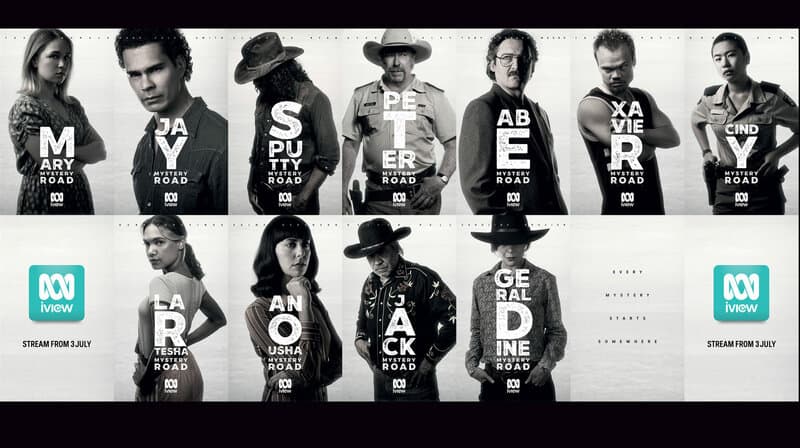
It was, however, uncharacteristic of the other Aussie shows which came my way this year, of which the best was probably COLIN FROM ACCOUNTS. A romcom written by and starring a real-life couple, this could have been saccharine but was instead joyfully irreverent; the meet-cute involved a flashed boob and a car accident involving the titular dog. Both Ashley (Harriet Dyer) and Gordon (Patrick Brammall) are flawed but likeable characters; their tentative, faltering relationship feels believable and the plot doesn't ignore real life issues ranging from testicular cancer to the difficulties of dating across an age gap. Most importantly, it's also riotously funny, though an episode where Gordon throws a birthday party for Ashley in his micro-brewery and tries desperately to fit in with her hipster mates is best watched through your fingers.
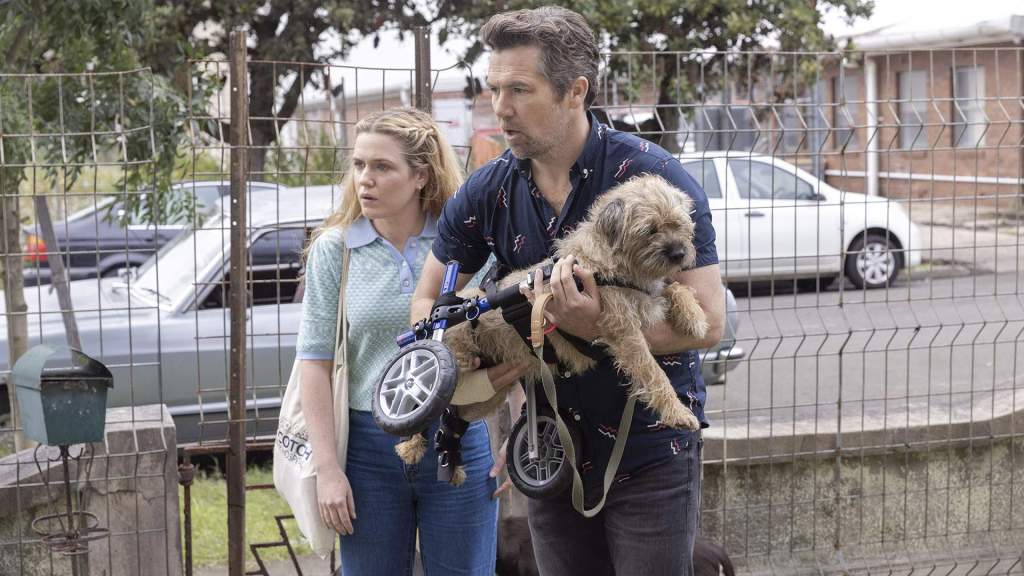
From something new to an established favourite in our house with the third series of BUMP. This moves events five years on from its predecessor, allowing the younger cast members to inhabit roles closer to their actual age, (previously) baby Jacinda to be more of a proper character, and for everyone's lives to have developed in interesting ways. Oly and Santi have split up but are co-parenting (fairly) amicably, and their dynamic remains the primary focus, but the rich supporting cast still more than pull their weight, whether it's Dom accidentally creating a Meninist app, Angie dealing with cancer or Vince - secretly the absolute heart of this show - becoming a surrogate dad for his lesbian housemates. As always, absolutely recommended.
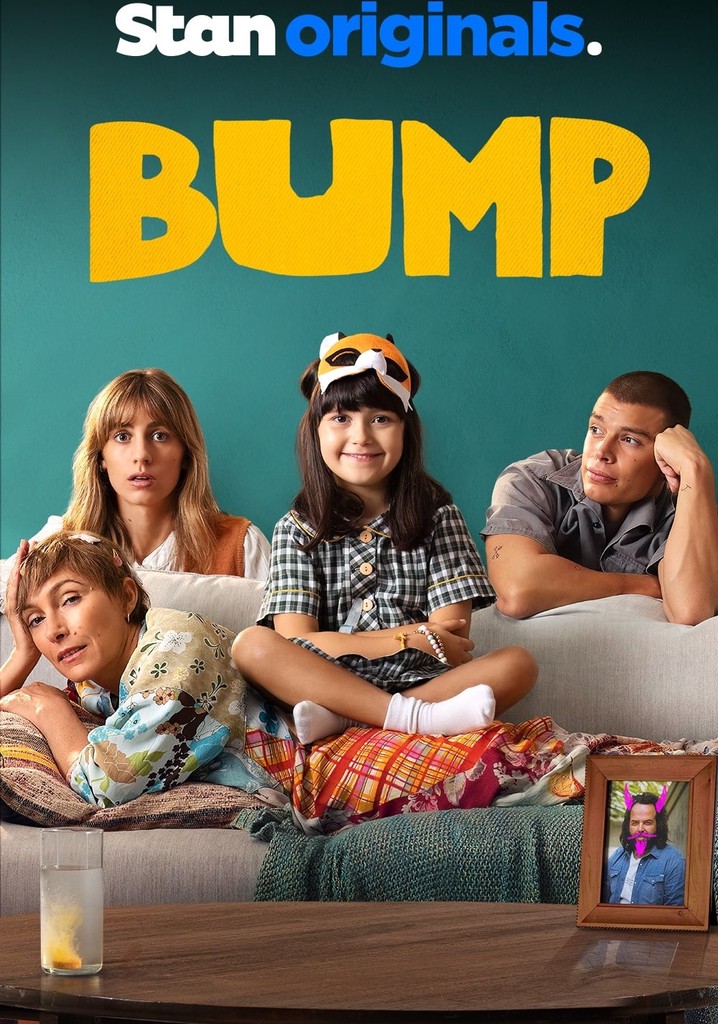
More under-the-radar, and the most overtly sitcommy of these choices was FISK (originally aired in Oz in 2021, but on Netflix this year). Kitty Flanagan co-writes and stars (in a genuinely horrible brown suit) as the eponymous Helen Tudor-Fisk, a lawyer who moves back to Melbourne after a divorce and takes a job at a shabby law firm. The jobs she takes on provide a case-of-the-week framework, but the real joy is in the sharp writing and the ensemble cast. Like Gordon in Colin From Accounts, Helen is a middle-aged person facing up to a life which hasn't turned out how she'd have expected, and while there are certain elements of cringe involved, her misanthropic attitude to, well, pretty much everything is paradoxically winning. Second series just dropped at the time of writing.
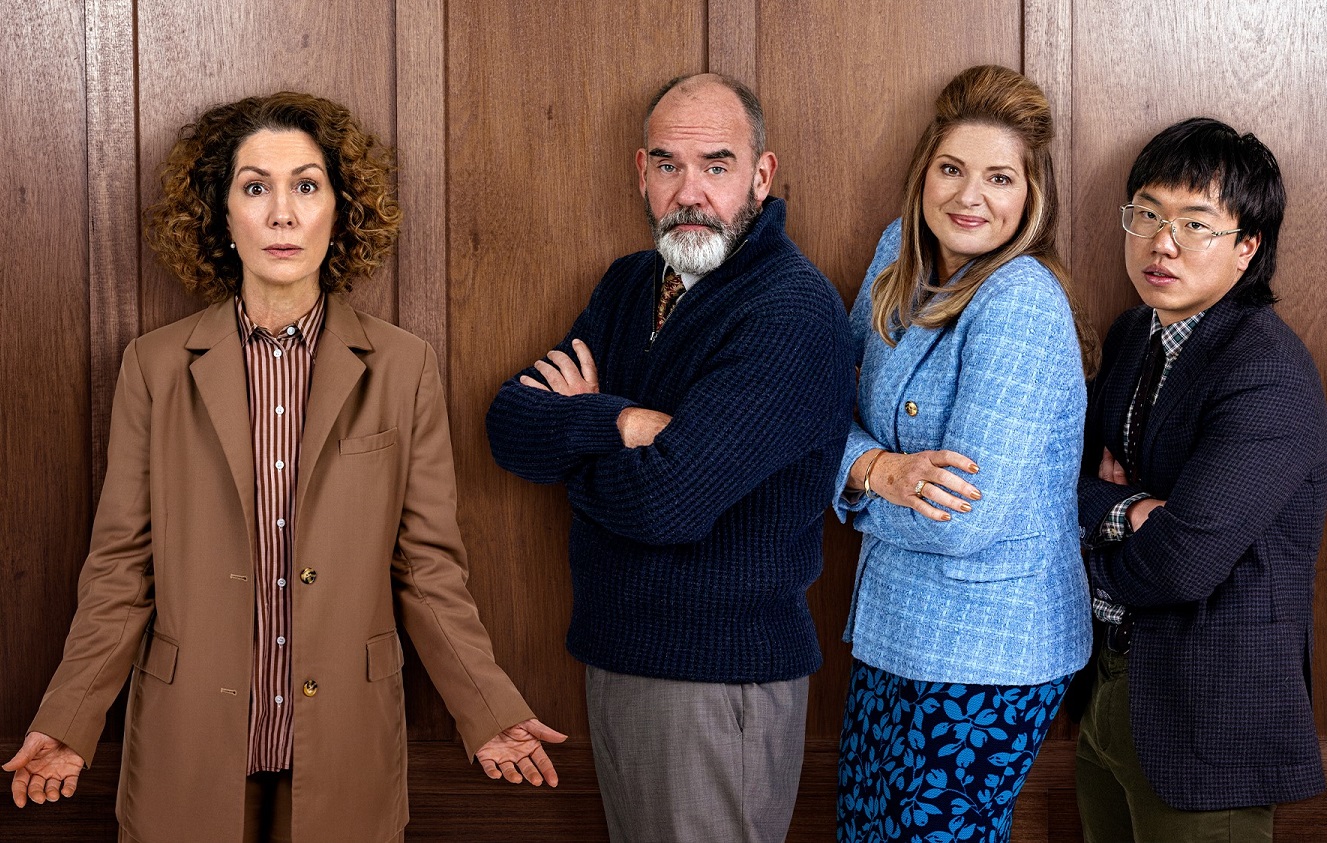
FOLK HORROR WITHOUT THE HORROR
The rural is rising again in popular culture. Maybe it has been for a while, or maybe it never really goes away, but - in music alone - witness PJ Harvey's most explicitly Dorset-orientated record ever, Lankum taking avant-folk to the Mercury Music Prize and The Quietus albums of the year, and Shirley Collins' paeans to Sussex on Archangel Hill. A song from the latter album, the wonderful Hares On The Mountain, provided the theme music to Bridget Christie's equally beguiling THE CHANGE. Christie writes and stars as Linda, who takes a leave of absence from domestic drudgery to find herself... in a caravan on the outskirts of a rural community in the Forest Of Dean.
The setting buzzes with the strangeness of countryside tradition - the town is soon to celebrate its annual Eel Festival, and its people are eccentric and often mysterious. But, in addition to its more clearly intended themes, like the celebration of middle-aged woman and their untapped potential and the protection of nature against invasive modernisation, The Change recasts folk horror tropes in the service of joy and community rather than mining them for terror. Meanwhile, you'd say that the impressively stacked cast featured actors playing against type, if so many of them - Susan Lynch, Monica Dolan, Liza Tarbuck, Tanya Moodie and Jerome Flynn, for example - weren't established shapeshifters. Props also to Jim Howick and Paul Whitehouse (in tandem with Christie's glorious writing) for making a right-wing shock jock and a lecherous old geezer sympathetic characters.
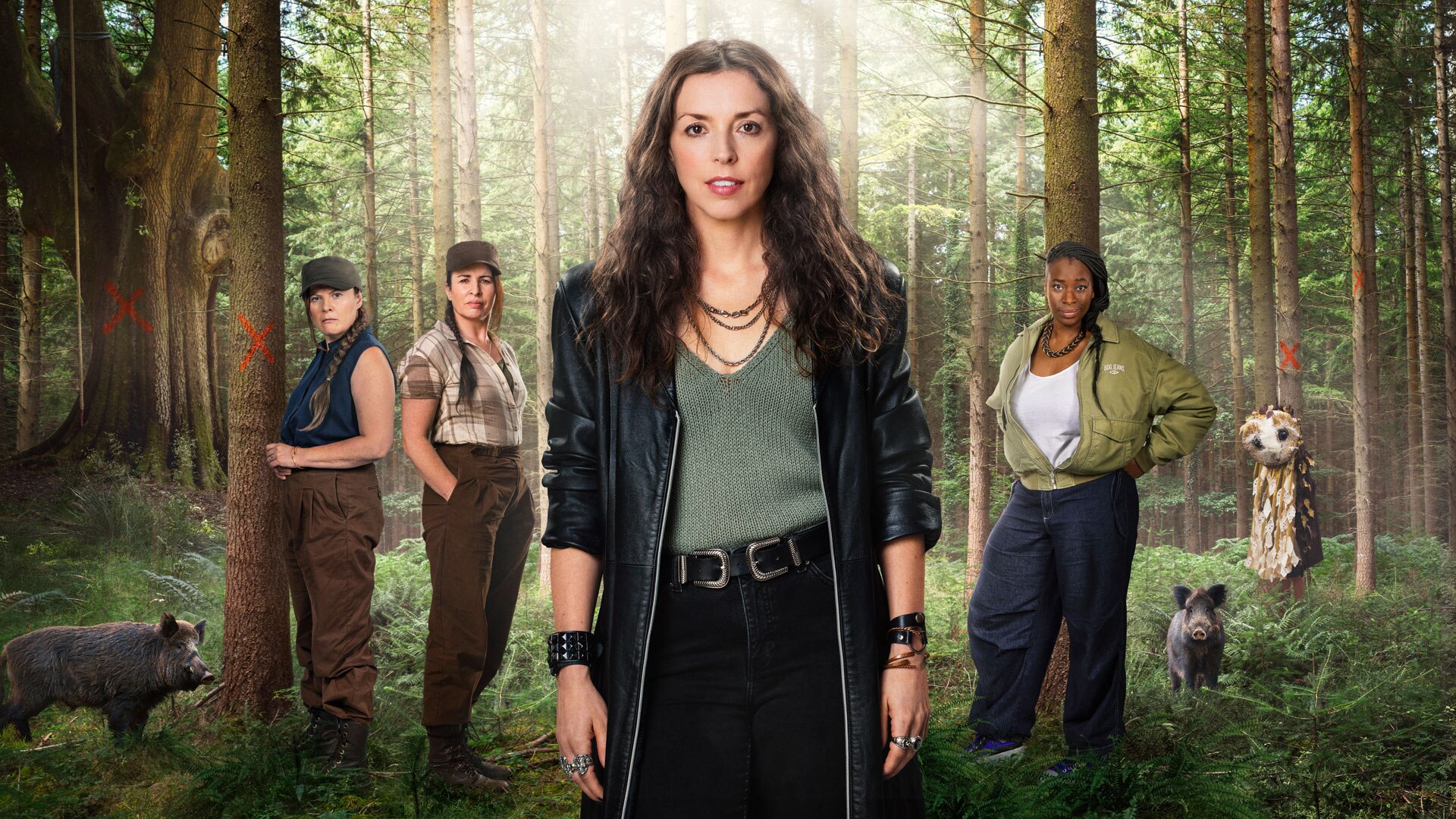
More folk horror without (much) horror came from THE GALLOWS POLE. I should probably declare an interest/humblebrag (delete as applicable), as this Shane Meadows three-parter was inspired by the novel of the same name, written by Benjamin Myers, an old pal from his music journo days. Mind you, this was more of a Mystery Road-style prequel, set some time before the events of the book and effectively detailing the origin story of The Cragg Vale Coiners, whose enterprise was up and running - if set for a fall - in Ben's telling of events. The strangeness here comes from the Stag Men who appear to David Hartley (Michael Socha) in visions, encouraging him into the illegal business of coin-clipping for the good of his poverty-stricken community. Mind you, even these characters contribute humour thanks to one scene with hilarious dialogue between David and their leader.
At heart, this is another tale of working class life from Meadows, albeit one in a rather more distant past than This Is England. Humour, romance and honour are in noticeably greater supply than in the novel, with David in particular a more straightforwardly good guy then the hardened older figure we meet on the printed page. Given its director's penchant for revisiting stories through the years, perhaps we'll see a much darker second series one day, covering the Coiners' decline.
CRIME WAVES
With entrails hanging from trees and a historic ritualistic murder in a weird rural location, WOLF had a fair whack of folk horror about it. But this was just one element of an absolutely stuffed narrative that took in everything from mildly unconvincing fetish raves to a missing dog. Of the two primary storylines, we had Ukweli Roach, best known to me as Anatole from Humans, as a DI obsessed with proving that his brother was kidnapped and murdered as a child by a creepy next door neighbour who looks exactly as I imagine Neil Oliver would these days if I was ever likely to watch his conspiratorial ramblings on whichever second-rate channel he's landed upon. On the other, we had a mildly irritating posh family taken hostage by fake coppers played by Sacha Dhawan and Iwan Rheon, whose camp but menacing double act is by far the show's highlight. Their scenes feel like Funny Games recut with the baroque humour/horror hybrid of Utopia, while both performances are the glue which hold some pretty unpredictable twists in place.
Perhaps the year's biggest surprise hit, BLUE LIGHTS was a Belfast-set drama centred on one particular police station, focussing on three probationary officers and their partners along with management, senior officers and the community they serve - including its criminal elements. The way the primary characters swiftly felt like fully fleshed-out actual humans showed up how so many cop shows deal in cookie-cutter archetypes; Sian Brooke has possibly never been better than her role here as social worker-turned-rookie cop Grace, but newer names Nathan Braniff (as the nervous Tommy) and Katherine Devlin (highly dedicated Annie) more than held their own. Richard Dormer's old hand Gerry, essentially played as a less manic version of his Captain Vimes from The Watch, was surely one of the year's best-loved new characters, while pretty much everyone else involved was on top form. Meanwhile, without being heavy-handed, the show demonstrated how policing - and life - in Northern Ireland remains different to elsewhere in the UK. Former paramilitaries might have changed tack to less ideological organised crime, but still retain some of the old methods - one sequence where a couple fail to intervene when their teenage son is punished for a transgression will live particularly long in the memory. With the police also being investigated from within, and secret services hindering work on the ground through their own manoeuvres, this felt like a legit replacement for Line Of Duty - but with plenty of humour and humanity on offer alongside the nail-biting drama. Fingers crossed for a second series, even if, for one reason or another, certain folk won't be back. Which reminds me - spoiler alert - surely one of the year's hardest-hitting screen deaths?

A similar tone was achieved by SCREW. Like No Offence, it was intially promoted as something of a comedy, but the second series of this prison-set show definitely tips the balance in favour of drama. Rumour has it there's an undercover cop posing as a prisoner, there to seek information about the gang who put Rose in there as an officer; meanwhile, a gang member has been transferred in to silence Rose. Jackie is pregnant with Gary's baby; Ali is living in his car; Larry is dying; Leigh and the prison itself are under review after Toby's death in the first series. There are still funny, and touching, moments, but the emphasis on heavier content brings out the best in the cast. Jamie-Lee O'Donnell's Rose almost overtakes her scene-stealing turn as Michelle in Derry Girls as her most memorable role; Laura Checkley sells all the emotions required of her - which are basically all the emotions, full stop - as Jackie; Stephen Wight's cynical, reactionary Gary begins to let his guard down; Ben Tavassoli is given much more to do as the conflicted Costa. Leo Gregory's murderous Tyler Reeks was the show's only concession to cliche, but maybe I just can't deal with a white man in his 40s speaking in MLE-style patois.
Lee Ingleby plays a key role in Screw, and cropped up again in THE LONG SHADOW. Mind you, so did half the Northern members of Equity, in a series which re-examined the crimes of Peter Sutcliffe - or, more accurately, their effects. There are no gratuitous reconstructions of his murders, with glimpses of limbs emerging from hedges or under mattresses all we are shown of his victims' bodies. Instead, in the manner of Hallie Rubenhold's book The Five, which examined the women believed to have been killed by Jack The Ripper, we meet (some of) the women as living, breathing characters; we see their families, both before and after they're hit by grief; and we see the effects on the women who survive attacks, the way they're assumed to have been prostitutes or become too afraid to leave the house. The other strand is about the police investigation which, given that Sutcliffe was active from 1975 to 1980, we already knew was going to be mostly a story of failure. From Life On Mars to David Peace's Red Riding books (the first two of which I reread this year), we're primed to see British cops of the 70s as corrupt, venal, racist and sexist (I'll leave you to fill in your own comments about their present day image), and there's certainly some of that here, but it's a culture of professional competition, personal pride and (ironically) fear of failure that seems to put success out of reach. Visually, the 70s are evoked perfectly in their brown, smokey, down-at-heel glory, while the stacked cast makes this something of a spiritual sibling to last year's Sherwood (whose David Morrissey, almost inevitably, reappears here as a senior officer). Grim subject matter, for sure, but outstanding television.

Some seventy years, and 500 miles give or take, away, there was more grim subject matter in PARIS POLICE 1905, which you might have guessed was a sequel to Paris Police 1900. If that first visit was mostly about butchery and fascism, this time was more about corruption and syphilis. Fun times! Pretty much all of the surviving cast return, with Jérémie Laheurte's dogged Inspector Jouin once again getting thoroughly beaten up (literally and figuratively) in the course of his relentless quest for the truth. Thibaut Evrard's hardnut Joseph Fiersi is (mostly) on his side this time, while dramas persist for Marguerite Steinheil and Police Chief Lepine. Once again, there are notes of Red Riding here - conspiracies in high office, a loner trying to get to the bottom of things as his life unravels - and some almost hilarious violence in one of the show's climactic sequences.
Another bit of period drama in Netflix's BODIES - although the period in question toggles between 1890, 1941, 2023 and 2053. Based on a standalone Vertigo comic book series, the intriguing premise is that the same body, with the same injuries, turns up in the same London alleyway in all four eras. In each time, a detective, each with their own demons, motivations and instincts, is embroiled in the case. It is genuinely difficult to discuss further without major spoilers, but Stephen Graham, struggling manfully not to let his Scouse accent emerge, is somehow the link. Aside from feeling a little like a darker Doctor Who storyline (without The Doctor), Bodies is an original take on the murder mystery that's well worth inhabiting.

We'll get to new Who in due course - the crimewave isn't over yet! Screw aside, most of these the shows we've discussed have been police dramas, but GUILT is a little different. Revisiting brothers Max (Mark Bonnar) and Jake (Jamie Sives) for one last time, this third series wraps up their story while bringing together strands from both series. Unwillingly back in Edinburgh, they've plenty of enemies to avoid - but, as ever, Max is soon seeing ways to get rich through devious means. Along with a clutch of new characters, Emun Elliott returns as reliable Kenny (surely the character here who most deserves a happy ending?), along with Greg McHugh's terrifying philosophical hardnut Kenny, Ellie Haddington as Series 1's scheming pensioner Sheila and Phyllis Logan as crime matriarch and Big Bad Maggie Lynch. This finale lands the ending brilliantly - what a treat this dark but witty drama has been.
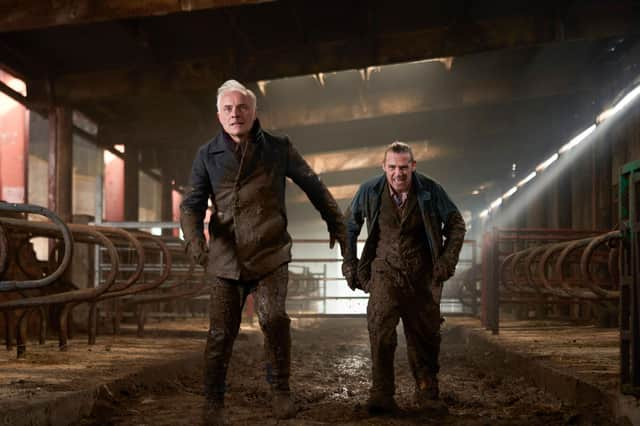
Sives and Lynch both pop up in the latest series of SHETLAND, though the feel of a mini-reunion is somewhat scuppered by the absence of any scenes together. And speaking of absences, this is the first series without Douglas Henshall, who's departed the islands to appear in incredibly average Euro Netflix drama Who Is Erin Carter?. Satisfyingly, while his turn as brooding DI Jimmy Perez felt like the glue that kept the series together, the remaining cast, the tight plotting and - yes - the scenery are now so well established that ther show continues to enthrall in his absence.
Longstanding (and much loved) second-in-command Tosh (Alison Robertson) effectively shares lead with Ashley Jensen's DI Ruth Calder, a long-absent native returning to her birthplace on the trail of a young girl, a bag of stolen cash and the two men pursuing her. Early episodes almost have a touch of Guilt about them, with Don Gilet and Arnas Fedaravicius providing both menace and black comedy as the bickering hitmen, but as always the plot widens out to include pagan rituals (touch of the old folk horror again), blackmail, a past mysterious death and, as is so often the case round these parts, the dark secrets of the mailies involved. At the time of writing, the future of the series remains unclear, but things are left open to (hopefully) revisit the excellent Tosh/Calder double act.

The last show I wanna talk about in this bit is rather different, but in some ways the most trad. POKER FACE was an inventive reimagining of classic case-of-the-week shows, with Natasha Lyonne's drifter Charlie showing up in various different settings just in time to solve a murder. Her character has a unique ability to tell whether someone is telling a lie, while Lyonne plays her as a sort of cool older rock chick* who disguises her skills and tenacity through a disarming slacker demeanour. The pattern is that we see the murder happen (shades of Columbo here), only for events to rewind to show that Charlie was present in the run-up (as, for example, an employee in a care home or running the merch stand for a touring band) and uniquely placed to pursue justice. Tremendous fun.
*Just need to clarify this 'older rock chick' thing. I mean, look, Lyonne is younger than me! What I mean is that Charlie has the vibe of a certain type of woman who was there in the glam metal scene of the 80s, but one who'd been around a while and had no interest in dressing like a stripper or being treated like shit by maladjusted men with big hair. She would have been into Aerosmith since the 70s, and would have preferred Cinderella or Hanoi Rocks to, say, Poison or Ratt. Sorry this bit will be of interest to very few people!
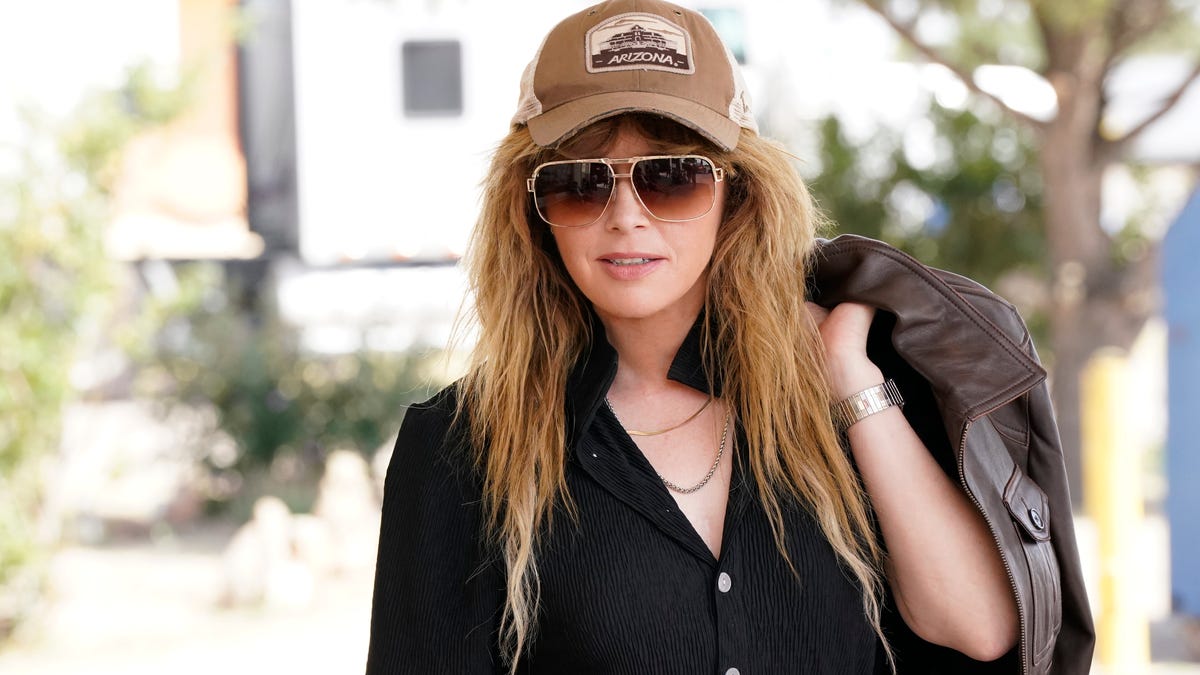
LAUGH OR CRY?
Poker Face had enough laughs to qualify for this section - in fact maybe more than most of what I'm about to write about. Two great series of TASKMASTER (a concept so beloved in this house that we also watched all three series of its New Zealand iteration, despite having no clue who any of the particpants were) provided the year's most uncomplicatedly funny moments. It was a joy to see the likes of Frankie Boyle and Mae Martin in very different settings in Series 15, while Series 16 was stuffed full of treats - the friendship between Sue Perkins and Susan "I trained at RADA!" Wokoma, Julian Clary's barely-disguised contempt for the entire premise, the moments when Lucy Beaumont's dappy persona gave way to genuinely weird surrealism and the alien charisma of Sam Campbell all made for one of this evergreen's most engaging iterations.
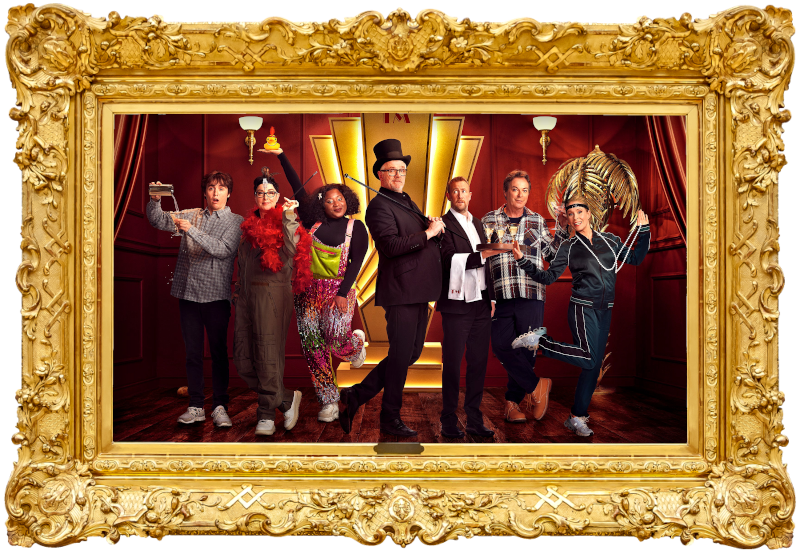
The final series of GHOSTS - the best British sitcom in an awfully long time - continued its winning streak, though tinged with sadness that the end was nigh. Revelations about Kitty and The Captain's respective demises amped up the moving moments, but for me Robin stole the series, not least thanks to his unexpected ability to speak French in a story which reminds us that the older Ghosts would have been present through their housemates' time living in Button House. At the time of writing, the Christmas special/finale hasn't aired, but I confidently predict that tears will be shed.
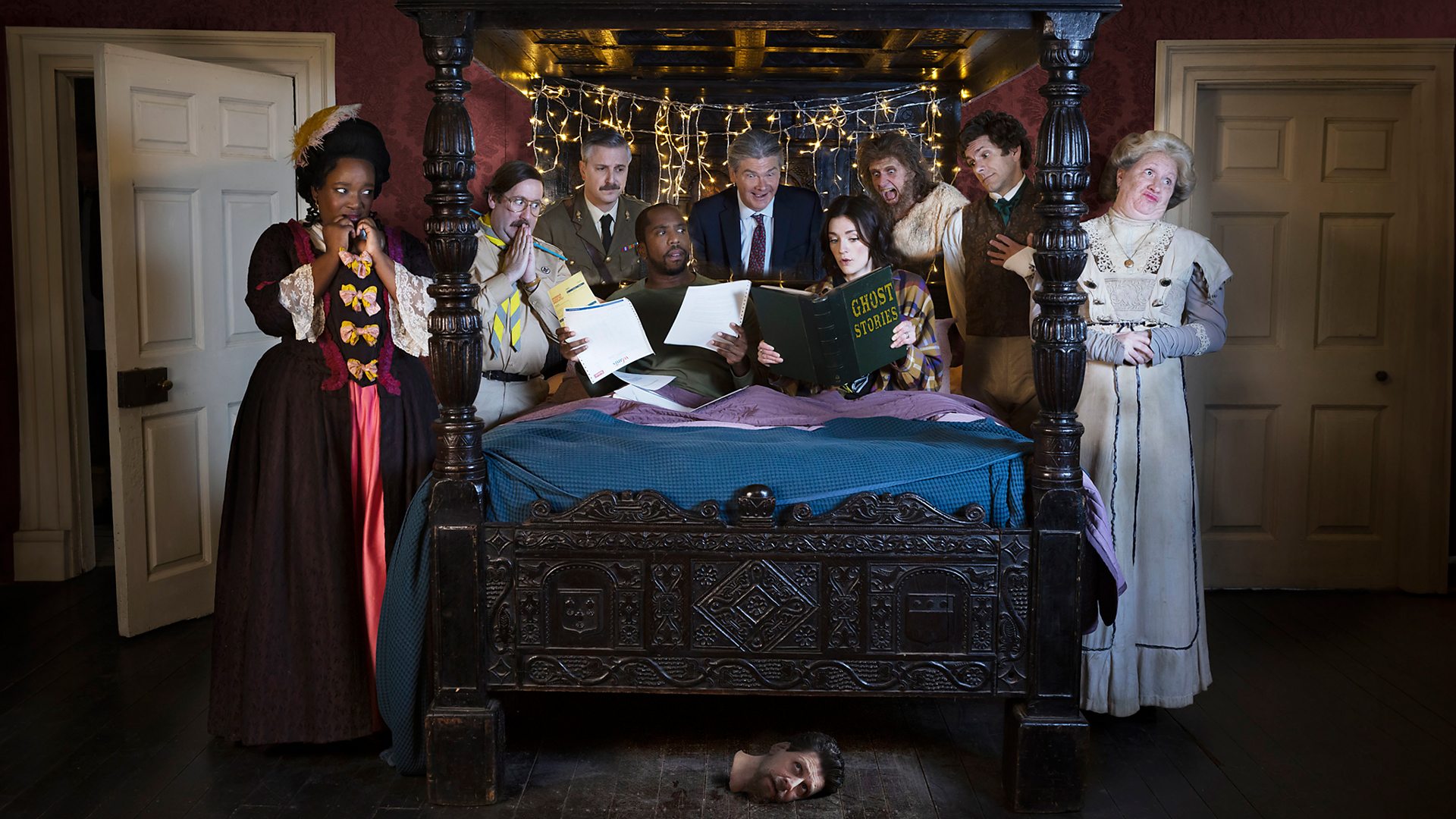
As for the rest of the year's comedy that I watched... DREAMING WHILST BLACK was brilliant, while laying bare the obstacles that remain for black Britons trying to make it in creative industries. Adjani Salmon writes and stars as Kwabena, with equally charismatic support from Dani Moseley and Babirye Bukilwa, and it's to his credit that it's genuinely funny while also painfully honest and clear-sighted.

I have to confess that I'd entirely forgotten that there was a series of INSIDE NO 9 this year, so I've had to hastily add it here. This might be a sign that Series 8 didn't boast quite as memorable entries as previous offerings, though the very dark denoument of closer The Last Weekend is up there with Shearsmith and Pemberton's cruellest Tales Of The Unexpected moments, while hoax game show 3 By 3 was a neat trick.
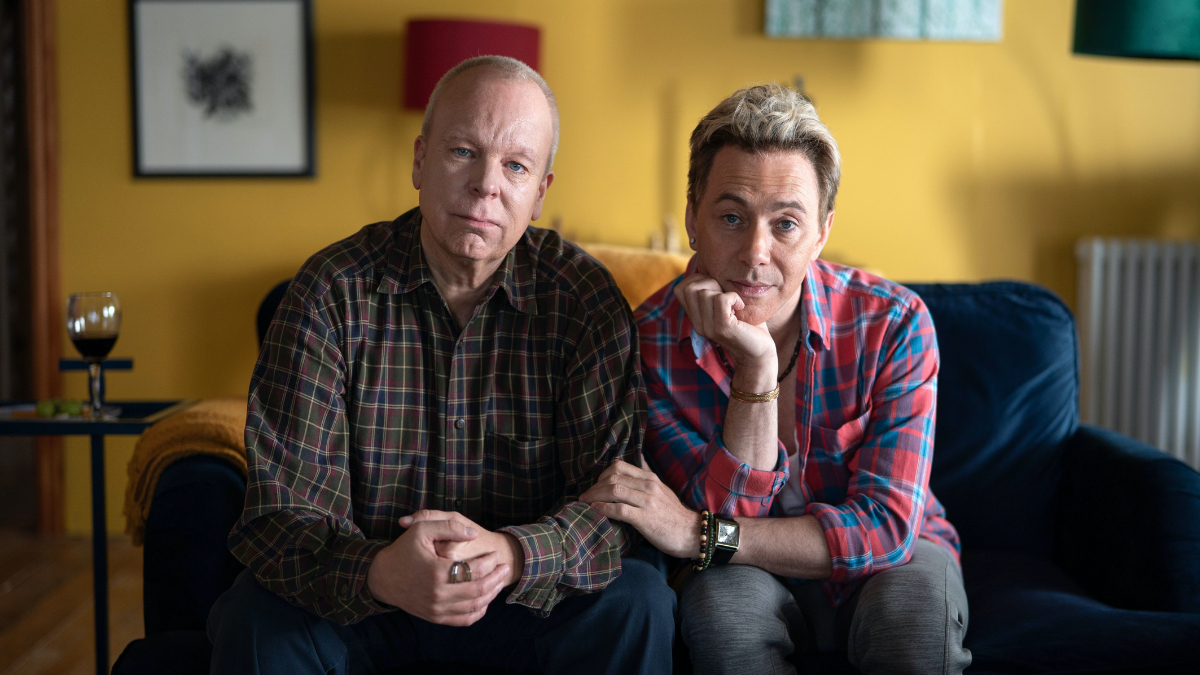
Last year's Am I Being Unreasonable? proved that Daisy May Cooper could do more than her (brilliant) turn as Kerry Mucklowe in the career-making This Country, and RAIN DOGS completed a transition into something closer on the spectrum to drama. In this grimy series, her character Costello is a single mother and recovering alcoholic, who works in a peep show but has the smarts to make it as a writer. She has a toxic relationship with Jack Farthing's Selby, a gay conman recently released from prison. Constantly on the move with daughter Iris (Fleur Tashjian), Costello's progress is repeatedly stymied by people dismissing, patronising or demonising her. If it doesn't sound like a barrel of laughs, well, it isn't - but it is tremendously moving, and Cooper and Farthing absolutely nail their respective roles. Unlike Am I Being Unreasonable?, I can't say I'd particularly like a second series of this, but don't take that as a criticism; one is just enough here.
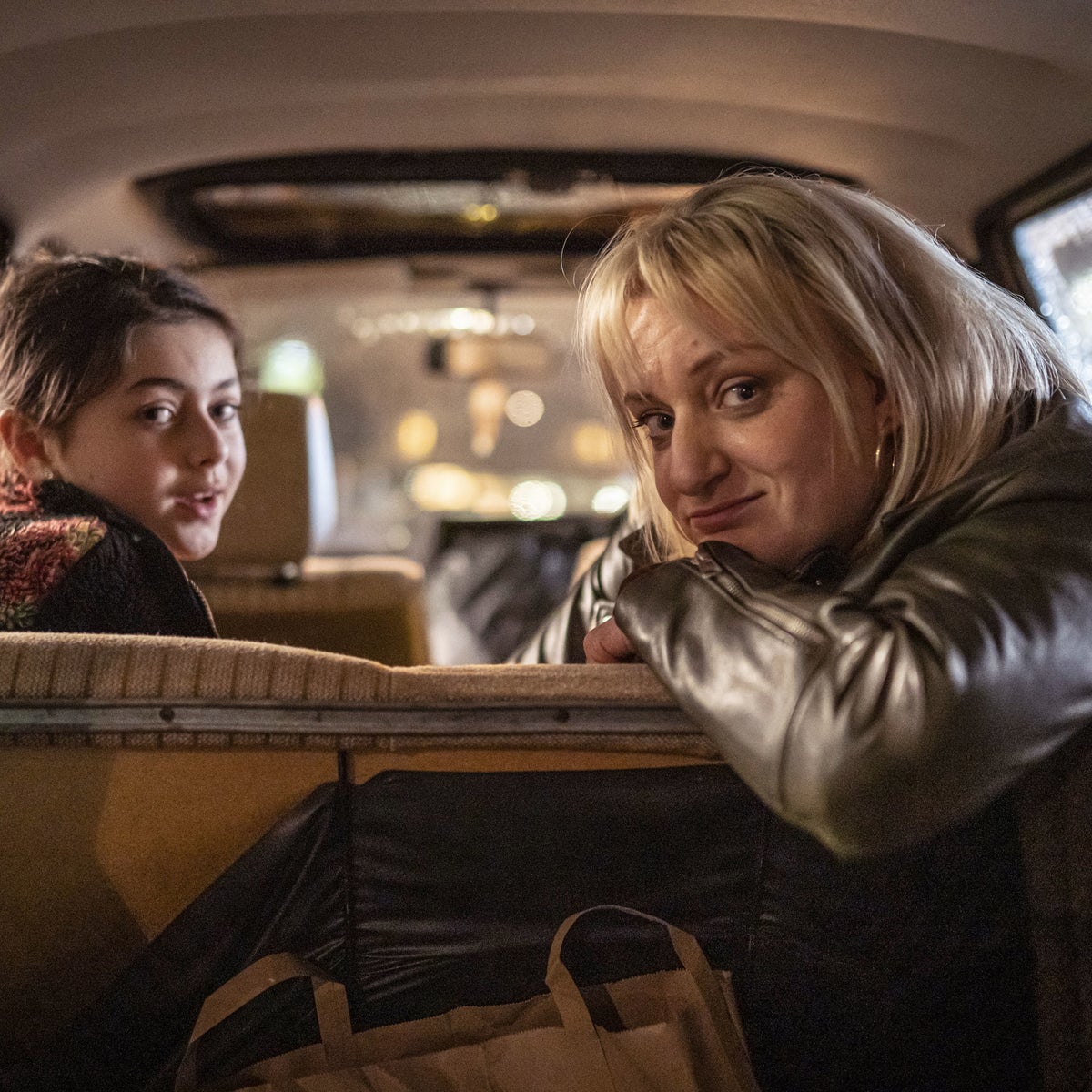
THE FOLLOWING IS BASED ON A PACK OF LIES features actors most known for comedy roles, like Rebekah Staton and Julian Barratt, and there's no denying its dark wit. But, really, this is one of the most powerful screen renditions of creative control I've seen, at times absolutely harrowing. Staton's Alice Newman discovers that her ex-husband, played by Alistair Petrie, is not, as previously thought, dead. Instead, he's reinvented himself as a sort of environmentalist entrepeneur (describing his work with the perfectly bullshit phrase "disruption exploration") with his eyes set on scamming a wealthy, bereaved author, played by Marianne Jean-Baptiste. Her efforts to expose him do not, needless to say, go smoothly. It's fantastic to see the excellent Staton in a lead role, and she really sells the still-extant fear she has for a man who previously ruined her life. Petrie, meanwhile, probably gave us the year's most convincing villain, an utterly amoral and devious figure who is both unlike any other screen bad guy, yet somehow stands in for all the men out there subjecting their partners to emotional, financial and even physical abuse - a scene where he throttles Alice is genuinely horrifying. Again, not a barrel of laughs, then - but ultimately, along with The Change, one of the most powerfully feminist series of this or any year.
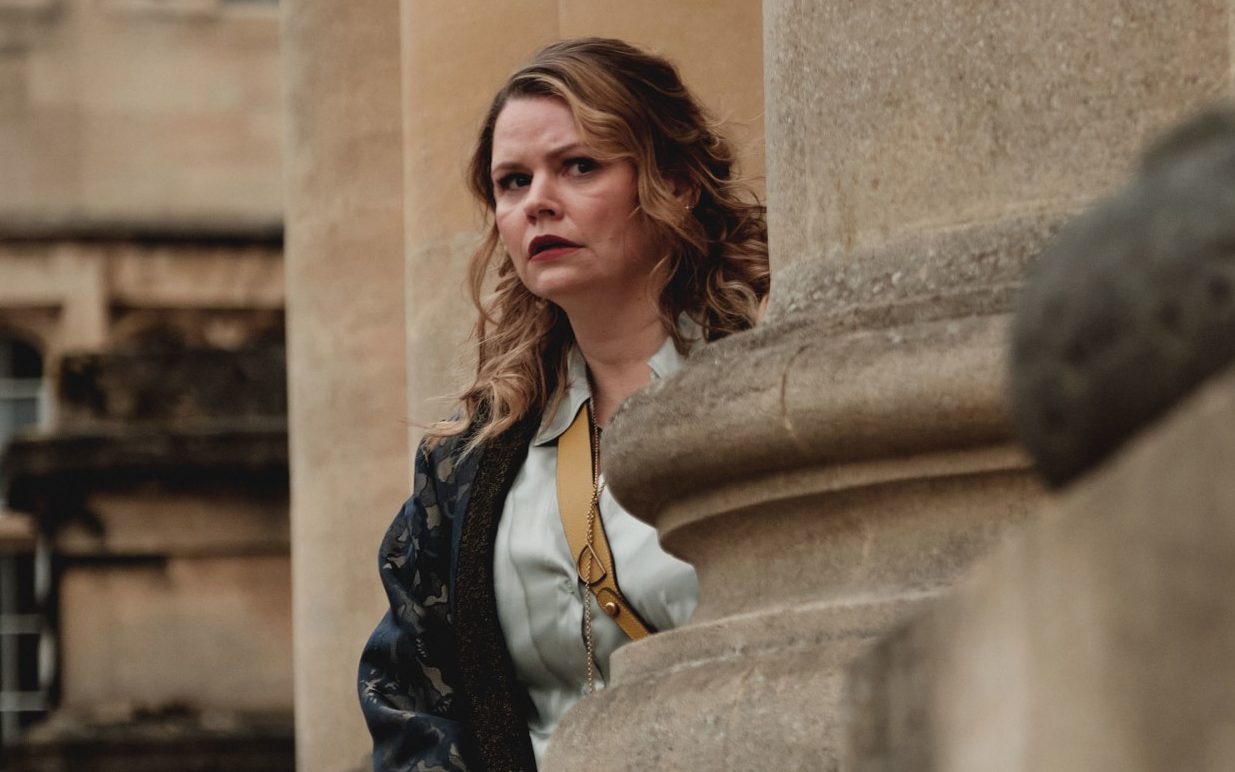
THE BLOCKBUSTERS
It was something of a whiplash to go from the previous pretty much straight into the final series of SEX EDUCATION, where Petrie's Michael Groff cut a very different figure in a redemptive story arc concerning his relationship with son Adam (Connor Swindells, looking ever more like he must surely be Petrie's real life son).
This storyline was somewhat off to the side, with Adam no longer in education, though at least he was still present, unlike Lily or Ola, unceremoniously dumped in a cast refresh that wasn't universally loved. Certainly, some of the new characters - Anthony Lexa's Abbi, Felix Mufti's Roman - initially grated, though as has so often been the case in this most carefully-balanced of shows, I feel like they were allowed to become more likeable as events progressed. Certainly, any complaints that the inclusion of trans characters was an example of Sex Education "going woke" were both tiresome and inaccurate, given that this has always been a show which sought to portray a rainbow of races, sexualities and various minorities in a scrupulously positive manner (and that Cal (Dua Saleh) was already part of the cast). Witness George Robinson's character Isaac, once reviled by fans as an obstacle in the Otis/Maeve romance, but in this series making a principled stand for disabled access and bonding with the always-brilliant Aimee (Aimee Lou Wood) in a low-key but involving romance.
So, speaking of Otis and Maeve... theirs has, traditionally, been the on-off relationship on which the show supposedly hangs. This time round, they were given closure, but for me the heart of the show is more about friendship: Otis and Eric (the ever-effervescent Ncuti Gatwa), Maeve and Aimee, Jackson and Viv... So, anyway, this final season still had loads to recommend it, and for my money most of the various plot strands ended pretty well. It's a sign of how beloved many of the cast have bcome that seeing two previously-absent teachers turn up to a funeral was a tear-jerking moment. Teachers! Many established characters were given involving storylines, with Mimi Keene's Ruby completing her transition from cookie cutter mean girl to fan favourite. And I haven't even mentioned Gillian Anderson's Jean and appearances from Hannah Gadsby and Lisa McGrillis! I will say, though, that for me the two best performances came from Wood and Gatwa, the latter's struggle between his sexuality and his religion coming to head in such a powerful way that I've every confidence in his next, rather well-publicised role. Speaking of which...
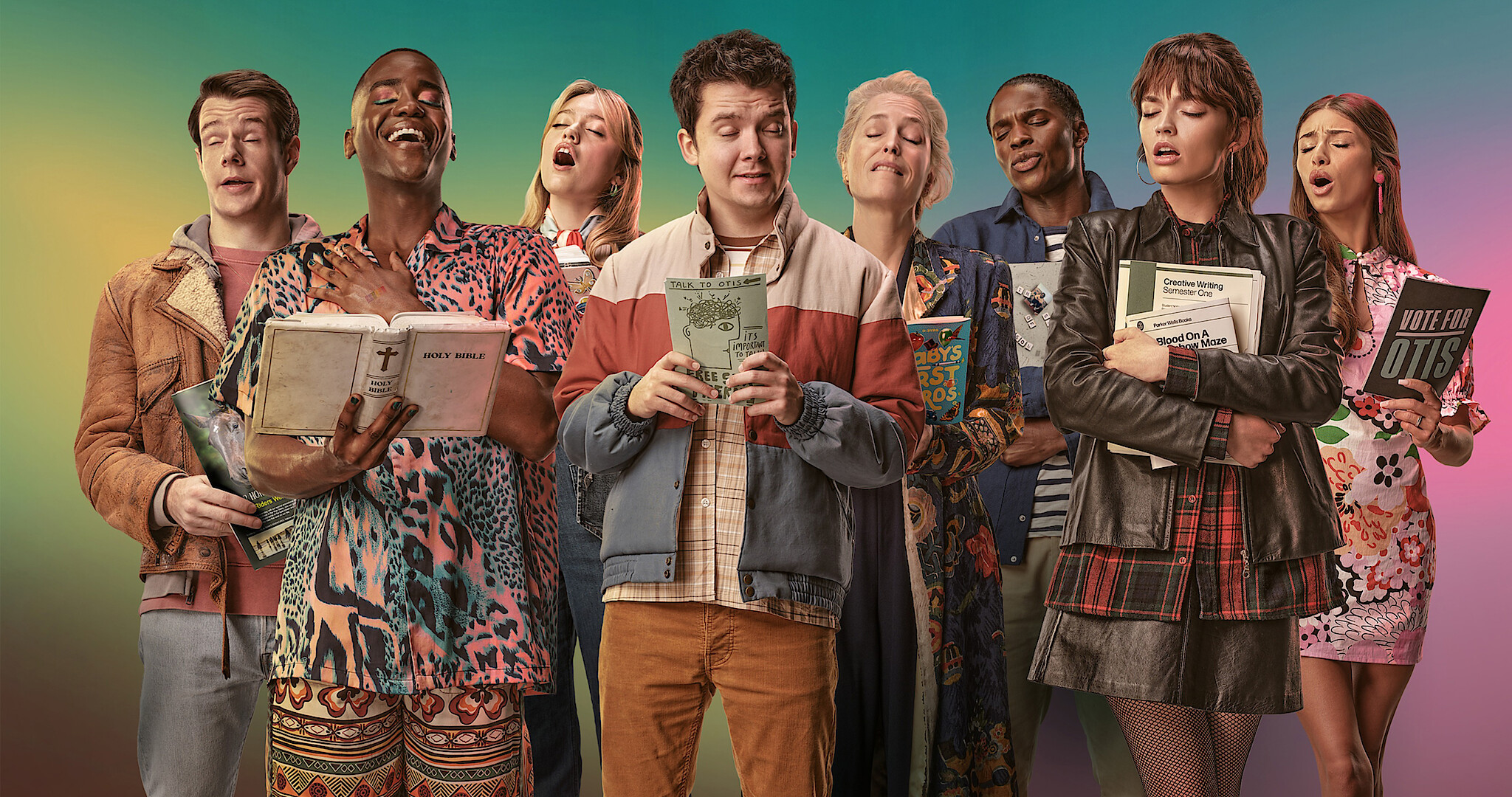
This year's DOCTOR WHO specials were a necessary reset to usher in the second Russell T Davies era. There's no getting round the fact that Chris Chibnall's period at the helm was aliteral turn-off for many fans, even if I enjoyed Jodie Whittaker's time in the role and found plenty to enjoy, particularly the Flux storyline. Bringing back David Tennant may have been a fairly calculated move to bring doubters back, but it's undeniable that it was a blast to see the man who probably defined the 21st Century Doctor taking the mantle once again. Each special worked for different reasons: as a man of a certain age, I remember the Beep The Meep storyline from the Marvel UK comic book waaaay back in the day, so it was a heady rush to see it adapted for the small screen in The Star Beast; Wild Blue Yonder was a defiantly weird double-header that made the most of Tennant and Catherine Tate's rapport; and The Giggle saw Neil Patrick Harris making a creditable (and apparently rather meme-worthy) turn as returning baddie (from even waaaaayer back) The Celestial Toymaker, dodgy accent aside. A wonderful final cameo from Bernard Cribbins nestled alongside new turns from Yasmin Finney as Donna's daughter Rose and Ruth Madeley as UNIT operative Shirley Bingham. Now, the chances are that you're already aware of what happened at the end of The Giggle, but just in case maybe skip to the next paragraph... I've got mixed feelings about that twist, which felt like a rather hedge-betting move that could undermine Gatwa's debut in the role. Tennant's Doctor had such a definitive send-off at the end of his first tenure (somehow managing to travel through time to see all of his former companions and allies mid-regeneration) that this maybe cheapens it a little? Still, though, it was good to see an acknowledgement of how the last forever has taken it out of The Doctor, giving at least part of him a happy ending while setting up Gatwa's incarnation to be more, well, fun. No doubt there will be people who've already made up their minds about him though...

...Probably the same people who reviled the third episode of THE LAST OF US, despite it being the best standalone piece of telly all year. I came to the series with no knowledge of the game, beyond its status as a cult favourite. I'm also kind of done with the whole post-zombie apocalypse narrative, done to (no pun intended) death by various iterations of The Walking Dead. Imagine my surprise, then, to find this series wholly enthralling, with intelligence, patience and its character development treated with more importance than the (unexpectedly rare) attacks by the infected (not sure anybody calls them zombies; maybe they're all fed up with the trope too). Bella Ramsay smashes it as Ellie, and while Pedro Pascal might be getting typecast as the reluctant surrogate dad figure, he imbues Joel with hard-won grit and slowly-blossoming fondness. And then there's the episode Long, Long Time, (largely) free of the characters we were just getting used to, telling the unexpected love story of Bill and Frank, played by Nick Offerman and Murray Bartlett. It's a genuinely wonderful piece of work, beautifully played by both actors, and its inclusion emphasised that The Last Of Us was so much more than anyone could have foreseen.
AND FINALLY...
Look, don't count how many shows I've discussed here, OK? But I couldn't leave it without mentioning FIGHT THE POWER: HOW HIP HOP CHANGED THE WORLD. This Chuck D-helmed documentary series was about more than just music, instead telling a social history of the African-American experience from the 1970s to the present day. With well-chosen interviewees, loads of archive footage and an abundance of beats and rhymes, this was simultaneously a reminder of hip hop's power and energy, a summation of the struggles involved through its fifty years, and a warning not to take anything for granted.
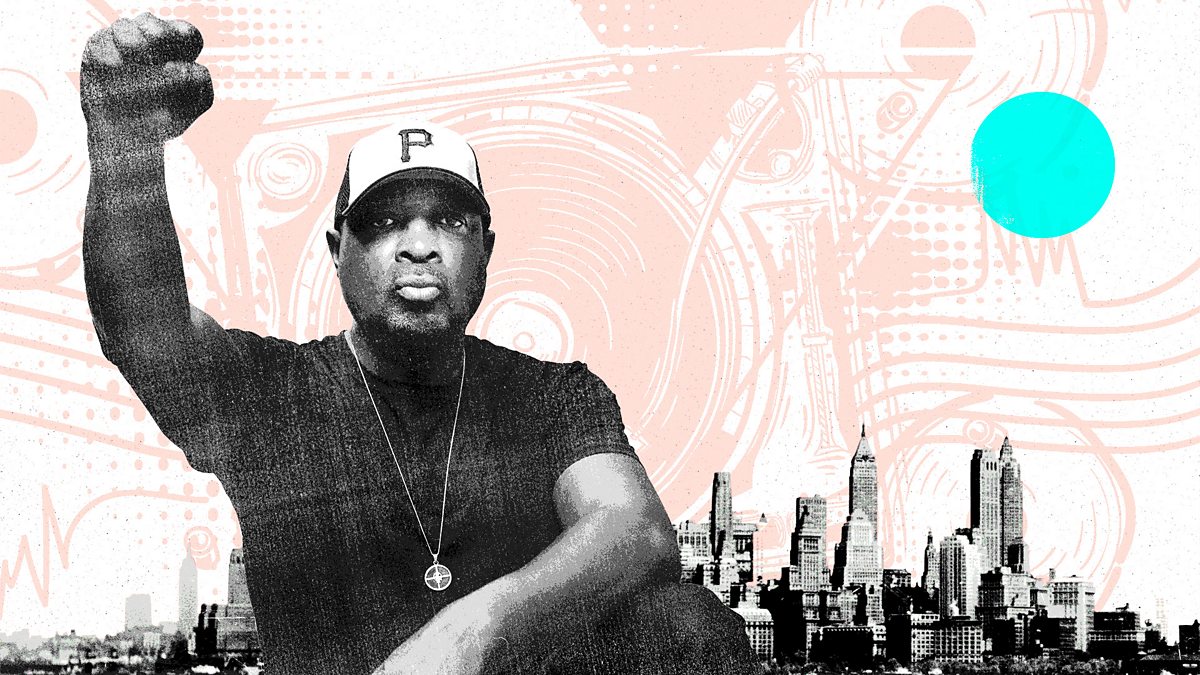
On
that cheery note, I'm off to get ready for all the Christmas telly
which is airing too late to appear here. Have fun getting the
highlighter out for the festive Radio Times and have a flipping great
Xmas! Same time next year?
No comments:
Post a Comment